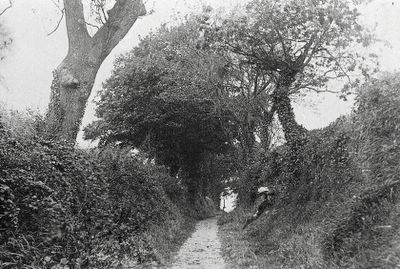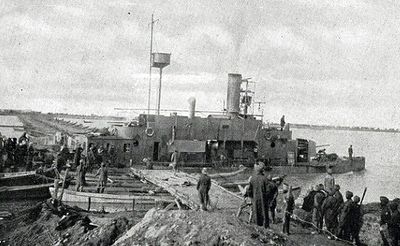Sorry that there will be a bit of a hiatus during my absence in 'foreign parts' for the next 10 weeks. I will try to post on occasion, but without regular access to a computer this might prove difficult.
Roger R.
Hardy's works take place in Wessex (named after the Anglo-Saxon kingdom which existed in the area). One of his distinctive achievements is to have captured the cultural atmosphere of rural Wessex in the golden epoch that existed just before the coming of the railways and the agricultural and industrial revolutions that were to change the English countryside for ever. His works are often deeply pessimistic and full of bitter irony, in sharp contrast to the prevalent Victorian optimism.
Dream of the City Shopwoman

'Twere sweet to have a comrade here,
Who'd vow to love this garreteer,
By city people's snap and sneer
Tried oft and hard!
We'd rove a truant cock and hen
To some snug solitary glen,
And never be seen to haunt again
This teeming yard.
Within a cot of thatch and clay
We'd list the flitting pipers play,
Our lives a twine of good and gay
Enwreathed discreetly;
Our blithest deeds so neighbouring wise
That doves should coo in soft surprise,
"These must belong to Paradise
Who live so sweetly."
Our clock should be the closing flowers,
Our sprinkle-bath the passing showers,
Our church the alleyed willow bowers,
The truth our theme;
And infant shapes might soon abound:
Their shining heads would dot us round
Like mushroom balls on grassy ground . . .
--But all is dream!
O God, that creatures framed to feel
A yearning nature's strong appeal
Should writhe on this eternal wheel
In rayless grime;
And vainly note, with wan regret,
Each star of early promise set;
Till Death relieves, and they forget
Their one Life's time!
WESTBOURNE PARK VILLAS, 1866.
(... for BAM)

The Roman Road

The Roman Road runs straight and bare
As the pale parting-line in hair
Across the heath. And thoughtful men
Contrast its days of Now and Then,
And delve, and measure, and compare;
Visioning on the vacant air
Helmed legionaries, who proudly rear
The Eagle, as they pace again
The Roman Road.
But no tall brass-helmed legionnaire
Haunts it for me. Uprises there
A mother's form upon my ken,
Guiding my infant steps, as when
We walked that ancient thoroughfare,
The Roman Road.

At the War Office, London

(Affixing the Lists of Killed and Wounded: December, 1899)
I
Last year I called this world of gain-givings
The darkest thinkable, and questioned sadly
If my own land could heave its pulse less gladly,
So charged it seemed with circumstance whence springs
The tragedy of things.
II
Yet at that censured time no heart was rent
Or feature blanched of parent, wife, or daughter
By hourly blazoned sheets of listed slaughter;
Death waited Nature's wont; Peace smiled unshent
From Ind to Occident.

John and Jane
I
He sees the world as a boisterous place
Where all things bear a laughing face,
And humorous scenes go hourly on,
Does John.
II
They find the world a pleasant place
Where all is ecstasy and grace,
Where a light has risen that cannot wane,
Do John and Jane.
III
They see as a palace their cottage-place,
Containing a pearl of the human race,
A hero, maybe, hereafter styled,
Do John and Jane with a baby-child.
IV
They rate the world as a gruesome place,
Where fair looks fade to a skull's grimace, -
As a pilgrimage they would fain get done -
Do John and Jane with their worthless son.
He sees the world as a boisterous place
Where all things bear a laughing face,
And humorous scenes go hourly on,
Does John.
II
They find the world a pleasant place
Where all is ecstasy and grace,
Where a light has risen that cannot wane,
Do John and Jane.
III
They see as a palace their cottage-place,
Containing a pearl of the human race,
A hero, maybe, hereafter styled,
Do John and Jane with a baby-child.
IV
They rate the world as a gruesome place,
Where fair looks fade to a skull's grimace, -
As a pilgrimage they would fain get done -
Do John and Jane with their worthless son.
Subscribe to:
Comments (Atom)